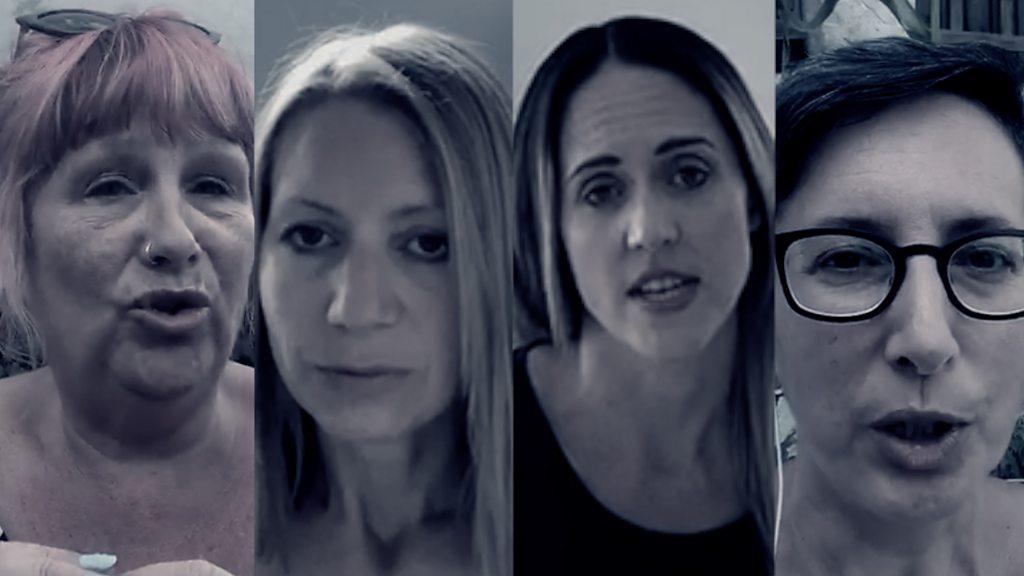Covid-19: Cambridge scientists study DNA for long Covid clues
- Published
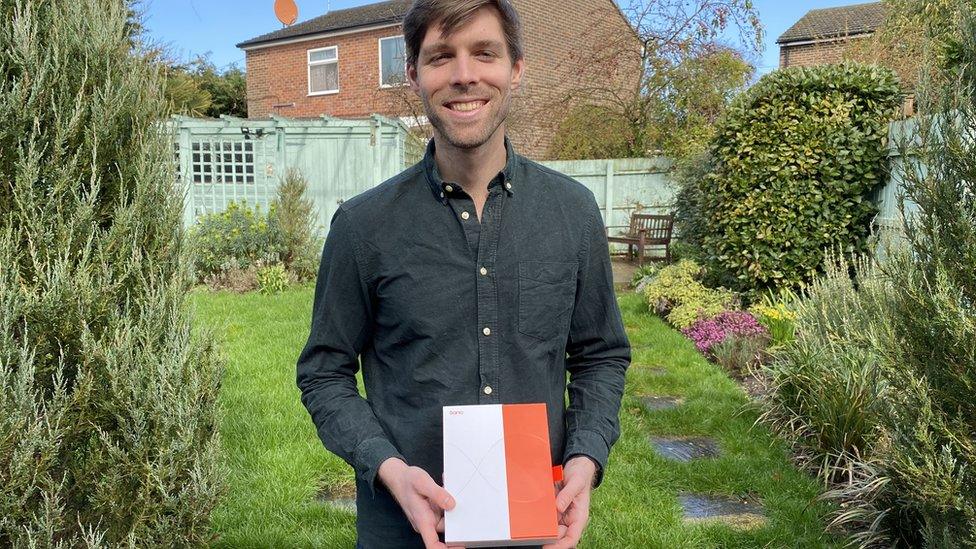
Dr Patrick Short hopes to identify genetic markers among those who experience long Covid to better target treatment
Scientists are investigating whether genetics impact on recovery from coronavirus, as part of research into "long Covid".
Sano Genetics, external in Cambridge is studying the DNA of volunteers who have had symptoms for more than three weeks.
Chief executive Dr Patrick Short said he hoped to "identify genetic markers" of those who develop long Covid.
"If you know someone is at a greater risk of developing this, we can provide better treatment," he said.
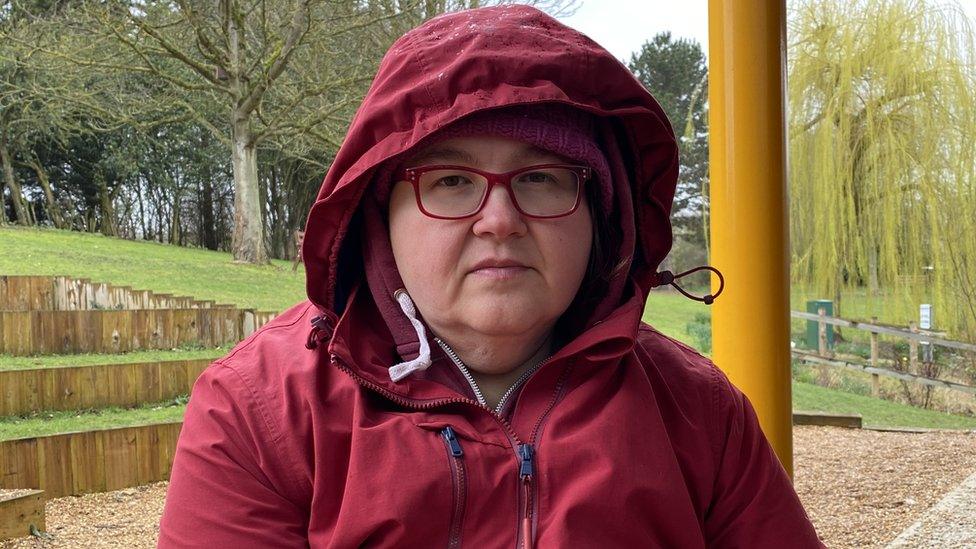
Adelina Chalmers contracted Covid-19 in March 2020 but is still experiencing symptoms a year later
Adelina Chalmers contracted coronavirus in March 2020 and is still experiencing symptoms a year later.
"For the last two and a half weeks I have been bed-ridden," she said.
"It's like being in a coma. You can't shower for days because you're too tired, you can't even make your own food or feed yourself."
Ms Chalmers, from Milton in Cambridgeshire, said her breathing problems had become severe.
"I used to do 25 hours of exercise a week: karate, rowing, gym, walking - now I can't get upstairs to my bedroom unless I walk on all fours and pause half way," she said.
Ms Chalmers also described numbness in her feet, headaches and stomach problems as symptoms she often experiences.
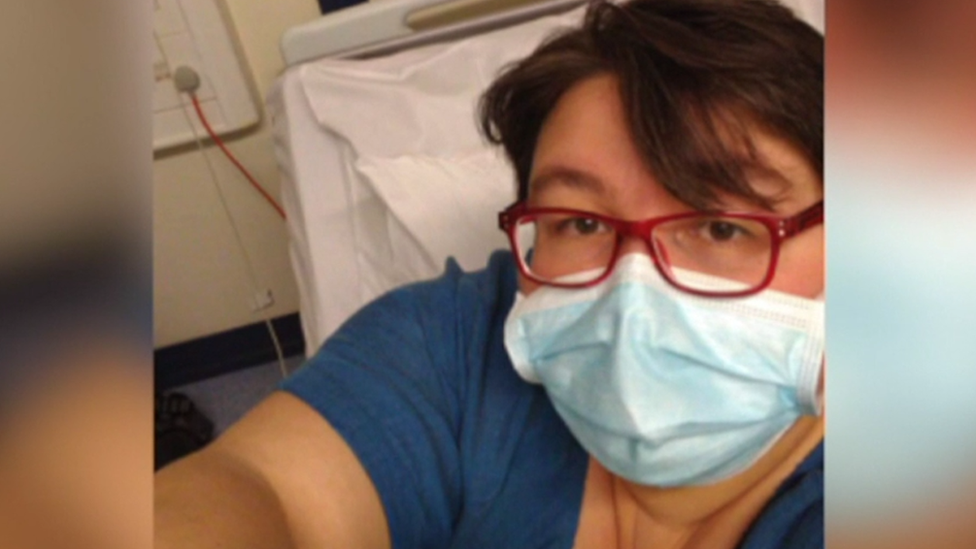
Ms Chalmers has been admitted to hospital twice since testing positive for coronavirus
Dr Short said participants deposited their saliva into kits that are sent to their homes, from which their DNA is extracted.
"We want to identify genetic markers among those who develop long Covid," he said.
"It will also hopefully tell us something biologically about the disease to help us better target therapies for it."
Ms Chalmers is hopeful the research into genetics will provide answers about why some people recover quickly and others are left with lasting effects.
"I'm hoping it will help identify some patterns as to why people like me get long Covid and get these horrible, long-term, chronic symptoms," she said.
"It would be great if it could be used to provide a cure that might work."
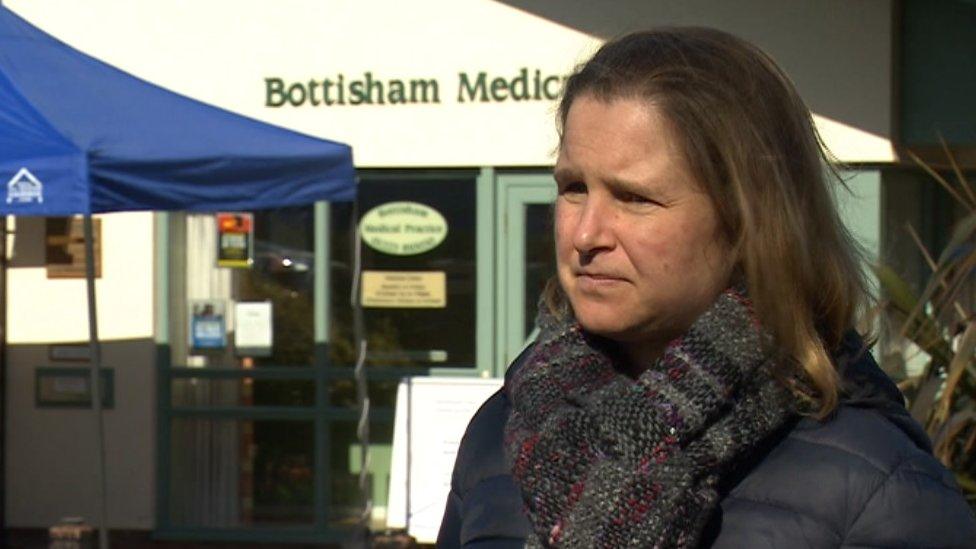
Dr Tamara Keith said there was not enough information about long Covid
Dr Tamara Keith, a GP at Bottisham Medical Practice, said the research was "absolutely essential".
"If we can predict who is going to get long Covid early on, we can help them earlier and potentially prevent it happening," she said.
Dr Keith said the lack of knowledge about why some people experience long-lasting symptoms was "frustrating".
"The thing I feel worst about is there is so little we can do at the moment as there is not enough information," she said.
"We feel a bit useless for the patients but the more research there is, the more we will be able to do to help them."

Find BBC News: East of England on Facebook, external, Instagram, external and Twitter, external. If you have a story suggestion email eastofenglandnews@bbc.co.uk
- Published6 February 2021
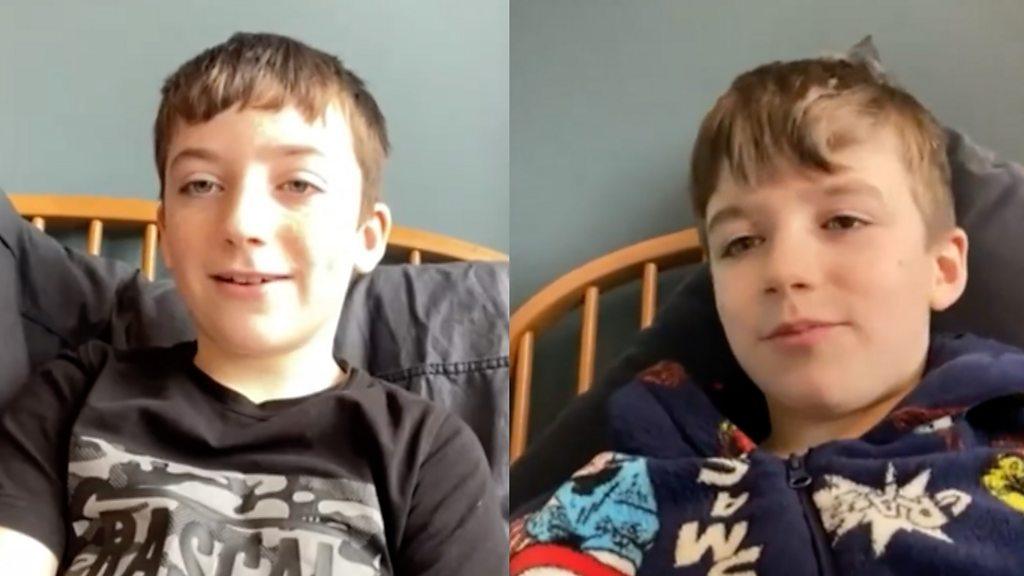
- Published6 October 2020

- Published29 September 2020
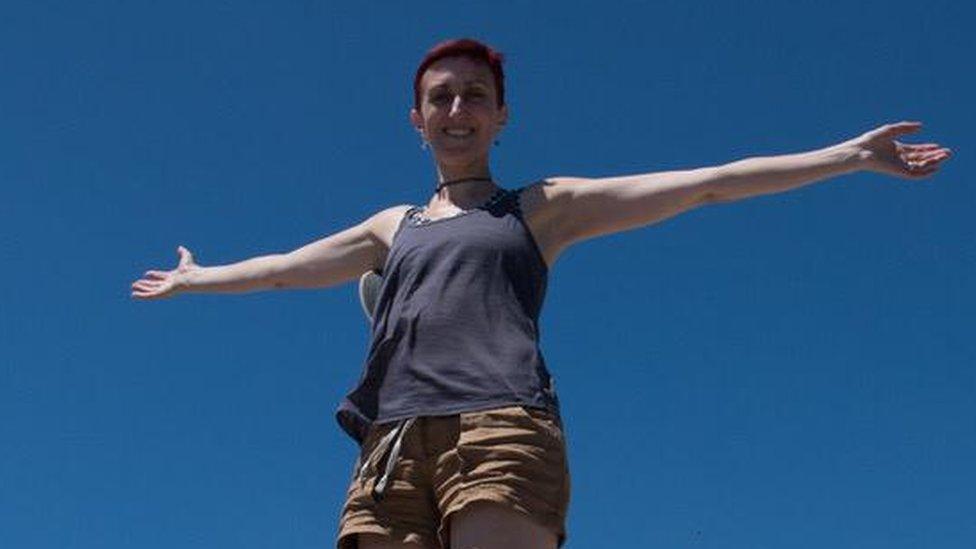
- Published4 September 2020
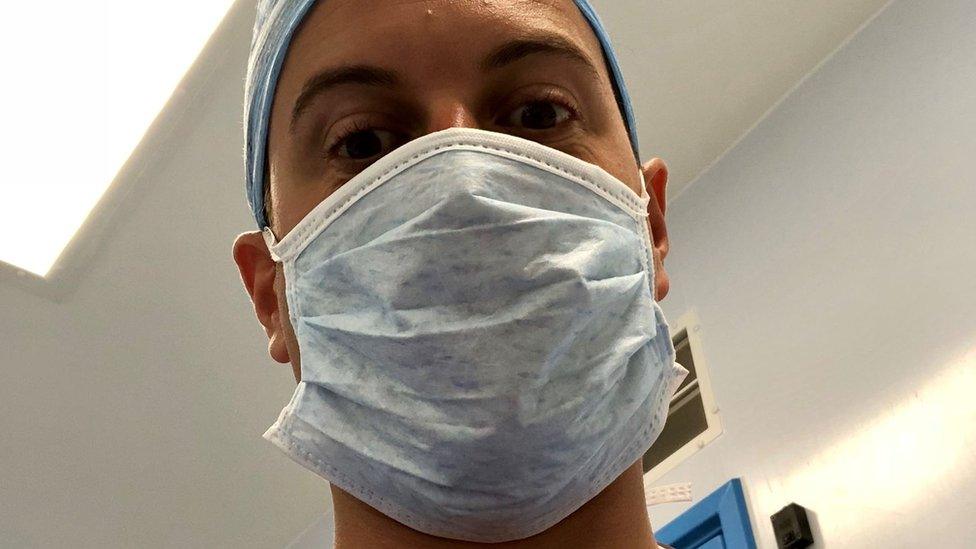
- Published16 August 2020
